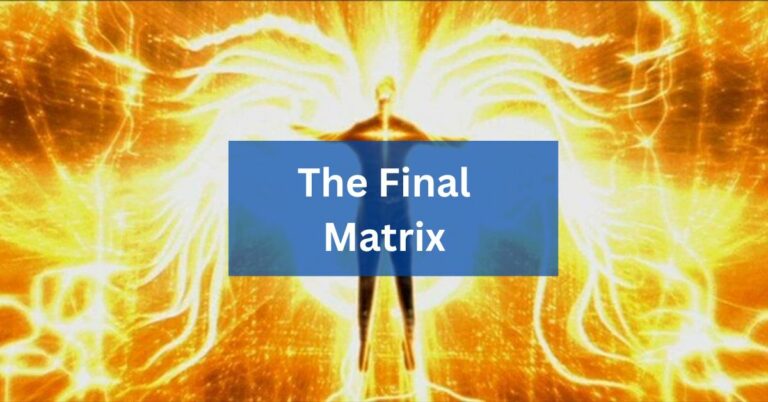What Is Blockchain Technology? – All You Need To Know!
Blockchain technology, a revolutionary force in the digital landscape, has transformed the way we perceive and execute transactions.
The blockchain technology stands at the forefront of innovation, shaping the digital landscape in profound ways.
Its decentralized nature, coupled with robust security features, has made it a cornerstone in various industries.
Understanding Blockchain Basics
At its core, blockchain is a decentralized, distributed ledger that records transactions across a network of computers. Each transaction is encapsulated within a block, forming a chain that is secure, transparent, and tamper-proof. The components of this technology, including blocks, nodes, and consensus mechanisms, work in tandem to ensure the integrity of the system.
Decentralization: The Core Concept
The essence of blockchain lies in its decentralization. Unlike traditional centralized systems, where a single authority controls data, blockchain relies on a network of nodes, each holding a copy of the entire ledger. This not only enhances security but also mitigates the risk of a single point of failure.
Security Features of Blockchain
Cryptography plays a pivotal role in blockchain, securing transactions and ensuring the confidentiality of data. The immutability and transparency inherent in blockchain further fortify its resistance to fraud and tampering, making it a reliable platform for digital interactions.
Blockchain in Various Industries
The impact of blockchain extends beyond cryptocurrencies. In finance, it revolutionizes transactions with the advent of cryptocurrencies and smart contracts. Supply chain management benefits from enhanced traceability, while healthcare relies on blockchain for secure and efficient data management.
Challenges and Concerns
While blockchain offers numerous advantages, challenges persist. Scalability issues, energy consumption concerns, and regulatory challenges pose hurdles to widespread adoption. Addressing these concerns is crucial for the continued evolution of blockchain technology.
Evolution of Blockchain
The evolution of blockchain is marked by the introduction of smart contracts. These self-executing contracts automate and enforce agreements, expanding the use cases of blockchain. Integration with emerging technologies like artificial intelligence and the Internet of Things further propels its evolution.
Future Trends in Blockchain Technology
As we look ahead, blockchain is poised to influence digital ownership through Non-Fungible Tokens (NFTs) and facilitate interoperability with cross-chain solutions. These trends are indicative of the technology’s continued growth and adaptability.
Blockchain and Financial Inclusion
One of blockchain’s remarkable contributions is in fostering financial inclusion. By reaching unbanked and underbanked populations, blockchain empowers individuals through decentralized finance (DeFi), providing financial services without traditional intermediaries.
Environmental Impact and Sustainable Solutions
Acknowledging concerns about energy consumption, the blockchain community is actively seeking sustainable solutions. From transitioning to eco-friendly consensus mechanisms to promoting energy-efficient practices, efforts are underway to minimize the environmental footprint of blockchain.
Adoption Challenges and Success Stories
Blockchain faces resistance to change in various sectors. However, success stories abound, demonstrating the transformative power of blockchain in industries such as supply chain, healthcare, and finance. Overcoming resistance requires a concerted effort to showcase the tangible benefits.
Educational Initiatives and Blockchain Literacy
Blockchain literacy is pivotal for its widespread acceptance. Educational initiatives play a crucial role in demystifying blockchain, making it accessible to the public. Increased awareness fosters a more informed and receptive audience for the technology.
Blockchain’s Role in Combatting Fraud
The inherent security features of blockchain position it as a powerful tool in combatting fraud. From verifying the authenticity of products in supply chains to securing digital transactions, blockchain offers versatile solutions in preventing and detecting fraudulent activities.
The Role of Governments in Blockchain Adoption
Governments play a significant role in shaping the trajectory of blockchain technology. Initiatives and regulatory frameworks determine the extent of adoption. Successful integration requires collaboration between the private sector and governments to create an environment conducive to blockchain development.
Conclusion
In conclusion, blockchain technology stands at the forefront of innovation, shaping the digital landscape in profound ways. Its decentralized nature, security features, and diverse applications make it a key player in various industries. As we navigate the evolving landscape of technology, blockchain’s impact is bound to expand, ushering in a new era of secure, transparent, and decentralized digital interactions.
FAQs
1. Is blockchain only associated with cryptocurrencies?
No, while cryptocurrencies leverage blockchain, its applications extend to various industries, including finance, supply chain, and healthcare.
2. How does blockchain ensure security in transactions?
Blockchain employs cryptographic techniques to secure transactions and the decentralization of data across a network of nodes.
3. What are the challenges hindering blockchain adoption?
Scalability issues, energy consumption concerns, and regulatory challenges are among the key hurdles facing widespread blockchain adoption.
4. How does blockchain contribute to financial inclusion?
Blockchain reaches unbanked and underbanked populations, providing financial services through decentralized finance (DeFi).
5. What role do governments play in blockchain adoption?
Governments influence blockchain adoption through initiatives, regulatory frameworks, and collaborations with the private sector.



